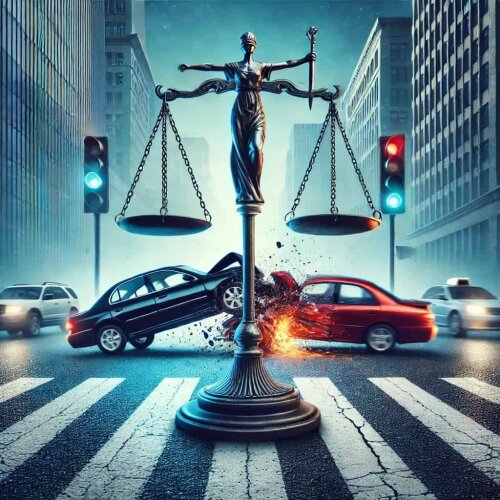Best Drunk Driving Lawyers in Portland
Share your needs with us, get contacted by law firms.
Free. Takes 2 min.
List of the best lawyers in Portland, United States
About Drunk Driving Law in Portland, United States
This guide focuses on laws and procedures you are likely to encounter in Portland, Oregon when you are stopped, arrested, or charged with operating a vehicle under the influence of alcohol or drugs. In Oregon the common legal term is DUII - Driving Under the Influence of Intoxicants. DUII laws cover alcohol, controlled substances, prescription medications that impair driving, and combinations of intoxicants. Consequences for a DUII conviction can include criminal penalties, license sanctions, mandatory treatment, ignition-interlock device requirements, and longer-term consequences such as higher insurance costs and employment impacts.
Why You May Need a Lawyer
Facing a DUII charge in Portland can involve multiple legal tracks - criminal court, administrative license actions, and sometimes civil exposure. A qualified attorney can:
- Explain the charges, potential penalties, and how local courts typically handle DUII cases.
- Protect your rights during police stops, arrests, and interviews.
- Review the legality of the stop, arrest, and any chemical testing - including whether police had reasonable suspicion or probable cause.
- Challenge breath, blood, or urine test procedures and laboratory handling when appropriate.
- Represent you at the Department of Motor Vehicles administrative hearing to fight a license suspension.
- Negotiate reductions, diversion, treatment-based sentencing, or alternative programs when available.
- Help you plan immediate next steps to reduce collateral damage, such as steps to regain driving privileges.
Local Laws Overview
Key points about DUII law and procedures in Portland - general but important to understand:
- Legal limits - For most adult drivers the per se blood alcohol concentration or BAC limit is 0.08 percent. Lower limits apply to commercial drivers and stricter rules apply for underage drivers.
- Underage drivers - Oregon enforces a zero-tolerance approach for drivers under 21. Any measurable alcohol can trigger administrative or criminal consequences under minor-in-possession and zero-tolerance rules.
- Chemical testing and implied consent - If arrested for DUII police will request chemical testing - breath, blood, or urine. Oregon has implied consent laws, meaning refusal can carry administrative consequences and can be used against you in court.
- Administrative license actions - The Oregon DMV conducts separate administrative hearings about license suspension that are independent of the criminal case. You typically have a limited time to request a hearing to contest the administrative suspension.
- Penalties vary - Penalties increase with prior convictions, high BAC readings, injury or death, and certain aggravating factors. Repeat offenses can lead to felony charges in more serious circumstances.
- Ignition-interlock devices - Many DUII convictions trigger requirements to install and use an ignition-interlock device as a condition for license reinstatement.
- Local court practices - Multnomah County and other Portland-area courts may have local diversion, treatment, or specialty programs that affect sentencing and case resolution. Availability and eligibility can vary by county and by judicial district.
Frequently Asked Questions
What should I do during a traffic stop if an officer suspects I am impaired?
Stay calm and be polite. Provide your license and registration when requested. You have a right to remain silent about where you were or how much you drank - you can politely decline to answer incriminating questions. Comply with lawful commands such as stepping out of the vehicle, but remember that you may have the right to refuse field sobriety tests in some jurisdictions. If you are arrested, ask for an attorney and do not volunteer additional information until you have legal advice.
What is the difference between a criminal DUII case and an administrative license suspension?
They are two separate processes. The criminal DUII case is prosecuted in court and can result in fines, probation, jail time, and a criminal record. The administrative license suspension is handled by the state motor vehicle agency and focuses on whether your driving privilege should be suspended for refusing tests or testing above legal limits. You must act quickly to request an administrative hearing to challenge the suspension.
Can I refuse a breath test or blood draw? What happens if I refuse?
Under implied consent laws police can inform you that refusing a requested chemical test will lead to administrative consequences. Refusing a breath test can result in an automatic license suspension and other penalties. Refusal can also be used as evidence against you in court. There can be strategic reasons to refuse and strategic reasons to submit to testing, depending on the facts of your case, so talk to a lawyer as soon as possible.
What penalties could I face if convicted of DUII?
Penalties depend on factors such as prior convictions, BAC level, whether anyone was injured, and whether property was damaged. Possible penalties include fines, jail or prison time, probation, mandatory alcohol or drug treatment, community service, license suspension or revocation, and ignition-interlock device requirements. Collateral consequences can include employment and housing impacts, higher insurance premiums, and immigration consequences for non-citizens.
How soon should I contact a lawyer after an arrest?
Contact a lawyer as soon as you can. Early involvement helps preserve evidence, meet short deadlines such as the administrative hearing request, and build a defense strategy. An attorney can also appear at interviews and advise you on interactions with law enforcement and prosecutors.
Will a DUII conviction always mean jail time?
Not necessarily. Many first-time offenders receive probation, fines, community service, alcohol treatment programs, and driver's license penalties instead of significant jail time. However, jail is possible depending on aggravating factors, very high BAC, refusal histories, prior convictions, or if the offense caused injury or death.
Can I get my license back after a suspension?
Often yes, but the process may require completing conditions such as serving a suspension period, installing an ignition-interlock device, completing treatment programs, and providing proof of financial responsibility. The administrative hearing process may preserve your right to drive during litigation if you act within the deadline to request a hearing.
How do field sobriety tests and portable breath tests affect my case?
Field sobriety tests are subjective and rely on officer observations. They can be challenged based on conditions, officer training, and health or physical issues. Portable breath devices have varying accuracy and are often less reliable than certified evidentiary tests. A lawyer can review how tests were administered and whether procedures were followed correctly.
Can I be charged with DUII if my impairment was caused by prescription medication?
Yes. DUII laws cover impairment from legally prescribed medications if they impair your ability to drive safely. It is important to disclose prescription medication details to your lawyer so they can investigate whether warnings, dosing, or interactions were factors and whether the state can prove impairment beyond a reasonable doubt.
What should I do with social media or evidence after an arrest?
Do not post about the incident on social media and avoid discussing the case publicly. Preserve any evidence that may be helpful, such as photos, messages, video, or witness contacts. Document your recollection as soon as possible while details are fresh. Your attorney can advise on how to gather and present evidence effectively.
Additional Resources
Resources that can help you understand law, procedure, and support options in Portland include:
- Oregon Department of Transportation - Driver and Motor Vehicle Services
- Oregon Judicial Department - local court information and forms
- Multnomah County Circuit Court - arraignments, calendars, local procedures
- Mothers Against Drunk Driving - victim support and prevention resources
- Local criminal defense bar associations and attorney referral services
- Substance abuse treatment providers and DUII education programs in the Portland metro area
- Legal aid organizations for income-qualified individuals who need representation or referrals
Next Steps
If you are facing a DUII stop, arrest, or charge in Portland follow these practical steps:
- Exercise your right to remain silent and request an attorney as soon as possible.
- Request any administrative hearing within the required timeframe - in many cases you must request a hearing promptly, so do not delay.
- Contact an experienced DUII attorney who is familiar with Portland-area courts and DMV procedures. Meet for an initial consultation to discuss your options and potential defenses.
- Preserve evidence - write down everything you remember, collect witness names, and keep copies of any documents served to you.
- Avoid posting on social media or discussing details with others who might share information publicly.
- Follow court orders, appear at all scheduled hearings, and comply with conditions such as bail or monitoring to avoid additional charges.
- If alcohol or substance use is an issue, consider starting treatment voluntarily - courts often view voluntary treatment positively, and it can help both your health and your case.
Getting prompt, local legal advice is the best way to protect your rights and pursue the most favorable outcome. A lawyer can explain specific deadlines and procedures that apply to your situation and help you decide the best strategy going forward.
Lawzana helps you find the best lawyers and law firms in Portland through a curated and pre-screened list of qualified legal professionals. Our platform offers rankings and detailed profiles of attorneys and law firms, allowing you to compare based on practice areas, including Drunk Driving, experience, and client feedback.
Each profile includes a description of the firm's areas of practice, client reviews, team members and partners, year of establishment, spoken languages, office locations, contact information, social media presence, and any published articles or resources. Most firms on our platform speak English and are experienced in both local and international legal matters.
Get a quote from top-rated law firms in Portland, United States — quickly, securely, and without unnecessary hassle.
Disclaimer:
The information provided on this page is for general informational purposes only and does not constitute legal advice. While we strive to ensure the accuracy and relevance of the content, legal information may change over time, and interpretations of the law can vary. You should always consult with a qualified legal professional for advice specific to your situation.
We disclaim all liability for actions taken or not taken based on the content of this page. If you believe any information is incorrect or outdated, please contact us, and we will review and update it where appropriate.









